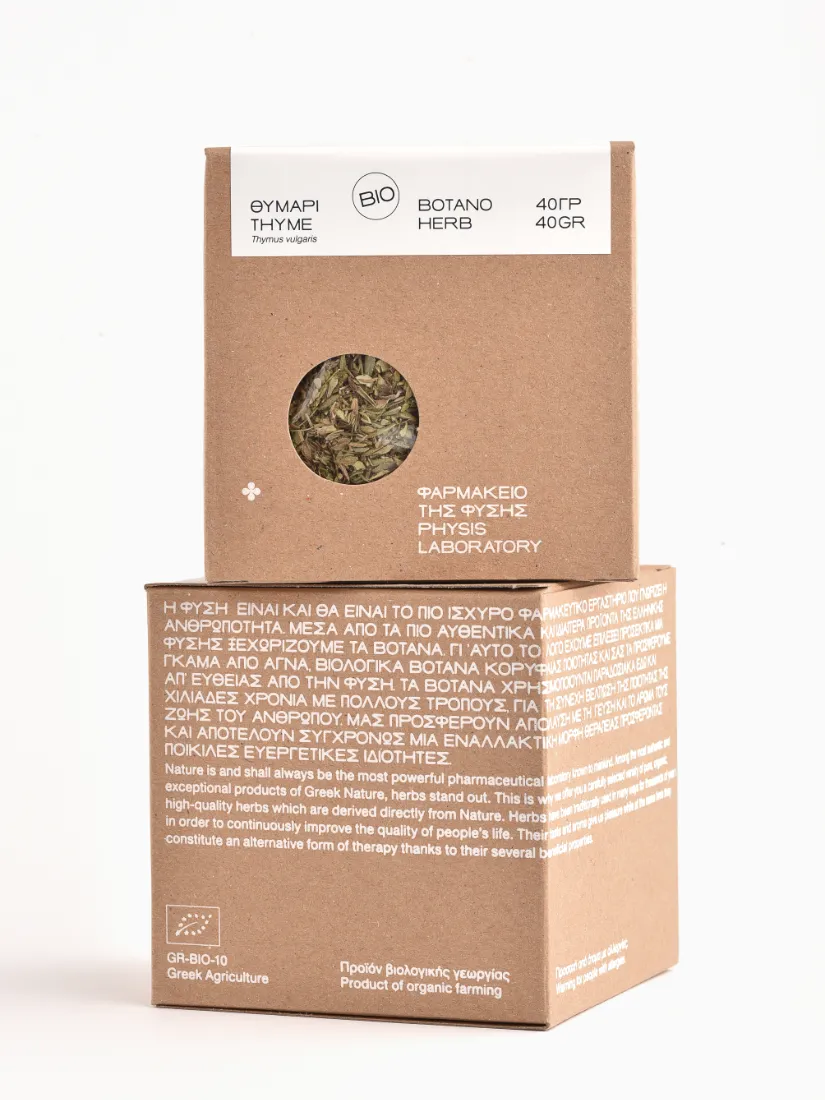Wirtu S.F., Ramaswamy K., Maitra R., Chopra S., Mishra A.K. & Jule L.T., 2024.
Isolation, characterization and antimicrobial activity study of Thymus
vulgaris. Scientific Reports, 14: 21573. https://doi.org/10.1038/s41598-024-
71012-2
2. Salehi B., Mishra A.P., Shukla I., Sharifi-Rad M., Contreras M.D.M., Segura-
Carretero A., Fathi H., Nasrabadi N.N., Kobarfard F., & Sharifi-Rad J., 2018.
Thymol thyme, and other plant sources: Health and potential uses.
Phytotherapy Research, 32(9): 1688-1706. https://doi.org/10.1002/ptr.6109
3. Hammoudi Halat D., Krayem M., Khaled S., Younes S., 2022. A Focused Insight
into Thyme: Biological, Chemical, and Therapeutic Properties of an
Indigenous Mediterranean Herb. Nutrients, 14(10): 2104.
https://doi.org/10.3390/nu14102104
4. Sonmezdag A.S., Kelebek H. & Selli S., 2018. Characterization of bioactive and
volatile profiles of thyme (Thymus vulgaris L.) teas as affected by infusion
times. Food Measure, 12, 2570–2580. https://doi.org/10.1007/s11694-018-
9874-5
5. Zeru A.B. & Muluneh M.A., 2020. Thyme Tea and Primary Dysmenorrhea
Among Young Female Students. Adolescent Health, Medicine and
Therapeutics, 11: 147-155. https://doi.org/10.2147/ahmt.s280800
6. Alqudah A., Qnais E.Y., Bseiso Y., Gammoh O., Wedyan M. & Alotaibi B.S.,
2023. Effects of orally administered Thymus vulgaris leaves on memory,
anxiety, depression, and sleep quality in university students: a randomized
controlled trial. European Review for Medical Pharmacological Sciences,
27(22): 10806-10814. https://doi.org/10.26355/eurrev_202311_34447

